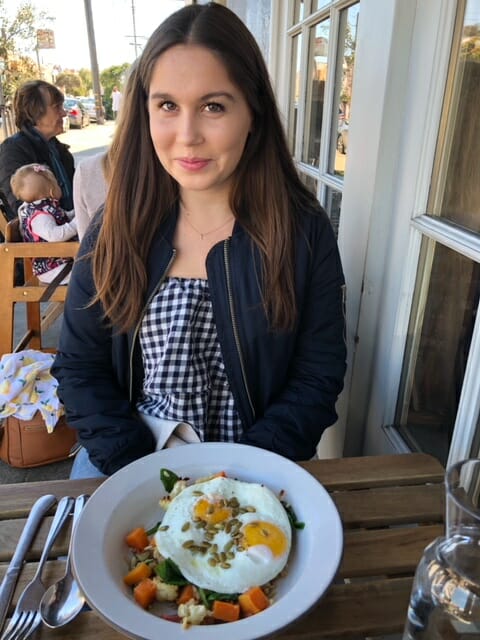There’s little doubt that vegetarianism among children and teenagers is more popular than ever and that the steep uptick in veganism is thanks in large part to young people. As a registered dietitian and mother of two vegetarians, I’ve learned how important it is to help your child navigate this new territory. I imagine plenty of folks are in the same boat wondering how to feed your vegetarian child.
How to Feed Your Vegetarian Child
I think every parent of a vegetarian worries that their child won’t be adequately nourished. And it’s a worthy concern when you consider that eliminating entire categories of food means cutting out all the nutrients that come along for the ride. Too often newly minted vegetarians, teens especially, neglect to make up for the losses and end up with a diet that looks more carbotarian than anything else (think pasta, rice, crackers, bread, and cereal).
From a nutrition standpoint, here’s what you need to consider when it comes to feeding a vegetarian:
Protein in a Vegetarian Diet
It’s understandable for parents to wonder if their young vegetarian is getting enough protein, especially since protein appears to be the “it” nutrient of the moment. The truth is, though, most of us take in far more protein than our bodies need (this post on protein requirements for kids may shed some light). And while meatless foods don’t deliver the wallop you might get in a porterhouse steak, a vegetarian can easily meet their needs by peppering protein-rich foods throughout the day. Here is an example of a one-day menu with the protein-rich source highlighted in blue.
- Breakfast
Greek yogurt and fruit parfait topped with nuts and seeds
- Snack
Edamame and an apple
- Lunch
Almond butter banana sandwich on whole grain bread
- Snack
Carrots with hummus
- Dinner
Three-bean chili over quinoa
Additional vegetarian-friendly protein sources include beans, chick peas, lentils, nuts, nut butters, seeds, seed butters, whole grains (notably quinoa, amaranth, oats, spelt, wild rice, and sorghum), yogurt (especially Greek yogurt), milk, cottage cheese, cheese, tofu, edamame, eggs, and for pescetarians, fish.
Vitamins and Minerals for Plant-Based Eaters
Moving to a plant-forward diet means cutting out foods that supply key vitamins and minerals. As such, it’s useful to know vegetarian-friendly sources for these nutrients to make sure your child is covered. If you think they’re not getting enough, talk to a registered dietitian or your pediatrician about taking a supplement.
- Omega-3 fats — Walnuts, hemp seeds, chia seeds, tofu, and soybean oil. It’s also in Omega-3 eggs, and for pescetarians, salmon, tuna, sardines, and other fatty fish.
- Vitamin D — Getting adequate vitamin D can be challenging, even for an omnivore. Good sources include fortified plant milks, fortified cereals, cow’s milk, eggs, and sunshine.
- Vitamin B-12 — This vitamin is found almost exclusively in animal products, so is tricky to get on a vegetarian diet. Plant-based sources include vitamin B-12-fortified cereals and plant milks, and nutritional yeast. It’s also in eggs and for pescetarians, shellfish, sardines, and other fish.
- Iron — Beans, chick peas, lentils, tofu, iron-fortified cereals, whole-grains, dark leafy green vegetables, blackstrap molasses, and dried fruit. Iron isn’t absorbed well from plant sources, but you can boost the absorption by pairing iron-rich food with vitamin C-rich foods (ie, citrus fruits, tomatoes, peppers, pineapple, and strawberries).
- Calcium — Milk, yogurt, cheese, calcium-fortified tofu, calcium-fortified breakfast cereal, calcium-fortified plant milk, such as almond milk, green vegetables such as turnip greens, kale, collards, and broccoli.
- Zinc — Chick peas, cashews, baked beans and other beans, fortified cereal, whole grains, and wheat germ. If your pescetarian child is an oyster lover, the zinc levels are off the chart.
